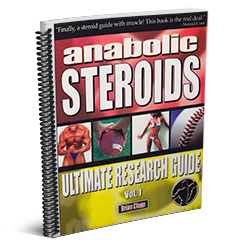
Originally Posted by
Capebuffalo

Consumer Reports conducted an eye-opening investigation that revealed several protein powders contain heavy metals - specifically arsenic, cadmium, and lead. EAS Myoplex tested for two heavy metals in higher amounts than the USP limit of exposure per day. Muscle Milk had the highest of all levels of all brands tested.
Here's an excerpt taken from the Consumer Reports investigation on Protein Powders:
Cadmium raises special concern because it accumulates in and can damage the kidneys, the same organs that can be damaged by excessive protein consumption. And it can take 20 years for the body to eliminate even half the cadmium absorbed today." This is a highly toxic metal, and while there are some cases where decisions have to be weighed against relative risks, accepting that you have to be exposed to any cadmium at all in your protein drink after your workout is definitely not one of them," says Michael Harbut, M.D., director of the Environmental Cancer Initiative at the Karmanos Cancer Institute in Royal Oak, Mich.
"When these toxic heavy metals are combined in a product that is marketed for daily use, that raises serious public health concerns, especially for pregnant women, children, and young adults," says Burns, who has been a toxicology consultant to state and federal government agencies.
Soy Protein
Many protein drinks use soy protein concentrate or soy protein isolate in conjunction with other proteins. Over 90% of the soy produced in this country is GMO - but that's not the only reason to avoid soy protein. When soy is looked at from a macronutrient perspective, it can give the illusion of a very healthy food - full of plant based protein, essential amino acids and fiber. However, the soy that is grown and produced today is largely hybridized, making the amino acids largely indigestible leading to digestive issues that have caused many people to be allergic to soy. What's worse is when soy is isolated to just its protein state, it becomes severely denatured and can cause hormonal disruptions because of the excessive amount of estrogen contained in it. Soy also has an abundance of phytic acid that leeches calcium and other vital minerals from your body.
Maltodextrin
Calling out an ingredient filler like maltodextrin may make you think I'm being nitpicky - but is this carb substitute that is likely derived from genetically modified corn really necessary in protein powders? Maltodextrin can be used to make a substance like "fibersol" that, for instance, is in the Body by Vi Shakes. This fibersol is made by heating maltodextrin at very high temperatures and treating it with enzymes and acids to make a fiber your body simply can't digest and makes you feel artificially full. If you are eating enough plant-based foods, there is no reason to supplement with this type of chemically derived fiber. Fibersol is just another additive that does absolutely nothing for your long term health. Why not add a real food like spinach or a banana to your smoothie instead?
Acesulfame Potassium or Acesulfame K
This is the most common form of artificial sweetener available in protein drinks (and tons of other processed foods) today and according the Center for Science in the Public Interest (CSPI) it is anything but safe. CSPI reported the safety tests of acesulfame-K that were conducted in the 1970s were inadequate. Specifically, two rat studies suggest that the additive might cause cancer, but these studies were never addressed by the FDA before they approved the substance to also be used unregulated in soft drinks. In addition it is mentioned that large doses of acetoacetamide (a breakdown product of this sugar) have been shown to affect the thyroid in rats, rabbits, and dogs. This toxic sugar substitute can be found in EAS Myoplex, Isogen, Pure Protein, Atkins, and Muscle Milk.
Whey Protein Isolate
Whey protein isolate is highly processed, unlike whole protein food concentrate. Most whey protein isolates start from ultra-pasteurized conventional milk that has antibiotics and growth hormones and are then exposed to acid processing, stripping alkalinizing minerals, naturally occurring vitamins and lipids. This processing makes whey protein isolate over acidifying in the body. Chronically consuming whey protein isolate without appropriate balance of alkalizing foods, can acidify your body and over time increase your vulnerability to degenerative disease. This overly processed form of whey can be found in a lot of popular protein drinks that are not included in this list but marketed under generic or store brand names including the one by Gatorade called "Recover."
Luckily, you don't have to rely on protein drinks because simply eating a variety of real food alone gives you plenty of protein.







 Reply With Quote
Reply With Quote


